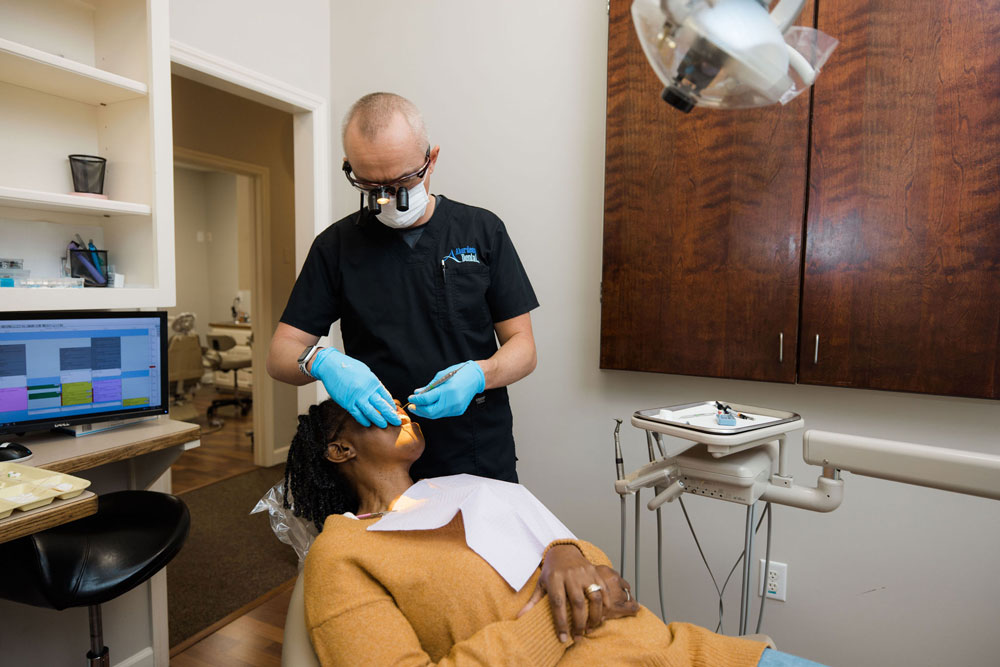In the competitive world of dentistry, having a strong online presence is crucial for attracting new patients and growing your practice. This article will explore the strategies used by dental marketing companies in the USA to help dental practices succeed. We will cover the basics of dental marketing, its importance, and effective strategies to implement.
What is Dental Marketing?
Dental marketing involves promoting dental practices to attract new patients and retain existing ones. It includes a range of strategies from online advertising to local community engagement. The goal is to make your dental practice more visible and appealing to potential patients.
Why is Dental Marketing Important?
Increased Visibility
Increased visibility is one of the main benefits of dental marketing. When your practice appears in online search results and social media feeds, more people become aware of your services. This visibility helps attract new patients who might not have known about your practice otherwise.
Building Trust
Dental marketing helps build trust with potential patients. By sharing informative content and positive reviews, you can establish your practice as a reliable and professional option. Trust is crucial in healthcare, as patients need to feel confident in their choice of provider.
Competitive Advantage
In a crowded market, dental marketing gives you a competitive edge. Many dental practices are vying for the same patients. Effective marketing strategies can set your practice apart, making it more attractive to potential patients.
Key Strategies for Dental Marketing
Search Engine Optimisation (SEO)
SEO is a critical component of dental marketing. It involves optimising your website to rank higher in search engine results. This increases the likelihood that potential patients will find your practice when searching for dental services.
Keyword Research
Keyword research is the first step in SEO. Identify the terms and phrases potential patients use when searching for dental services. Tools like Google Keyword Planner can help you find relevant keywords. Focus on local keywords, such as “dentist in [city],” to attract nearby patients.
On-Page Optimisation
On-page optimisation involves making changes to your website to improve its search engine ranking. This includes:
- Title Tags and Meta Descriptions: Ensure each page has a unique title tag and meta description. Include your target keywords to help search engines understand your content.
- Headings: Use headings (H1, H2, H3) to structure your content. Include your keywords in these headings.
- Content Quality: Create high-quality, informative content that addresses potential patients’ questions and concerns.
- URL Structure: Use clear and descriptive URLs that include your keywords.
Social Media Marketing
Social media is a powerful tool for dental marketing. Platforms like Facebook, Instagram, and Twitter allow you to connect with potential patients and share valuable content.
Content Sharing
Share informative and engaging content on your social media profiles. This can include blog posts, dental health tips, patient testimonials, and special offers. Consistent posting helps keep your practice in the minds of potential patients.
Paid Advertising
Consider using paid advertising on social media platforms. Facebook Ads and Instagram Ads allow you to target specific demographics and locations. This ensures your ads are seen by people who are most likely to need your services.
Online Reviews
Online reviews are crucial for building trust and attracting new patients. Encourage satisfied patients to leave positive reviews on platforms like Google My Business and Yelp. Respond to reviews, both positive and negative, to show that you value patient feedback.
Local SEO
Local SEO focuses on optimising your online presence to attract patients from your local area. This is particularly important for dental practices, as most patients prefer to visit a local dentist.
Google My Business
Create and optimise your Google My Business profile. This helps your practice appear in local search results and on Google Maps. Ensure your profile is complete with accurate information, including your address, phone number, and hours of operation.
Local Citations
List your practice in local online directories and ensure your information is consistent across all platforms. This helps improve your local search ranking and makes it easier for potential patients to find you.
Email Marketing
Email marketing is an effective way to stay connected with your patients. Send regular newsletters with updates, dental health tips, and special offers. Personalise your emails to make them more engaging and relevant to your patients.
Measuring Dental Marketing Success
Analytics Tools
Use analytics tools like Google Analytics to track your website’s performance. Key metrics to monitor include:
- Organic Traffic: The number of visitors coming to your site from search engines.
- Bounce Rate: The percentage of visitors who leave your site after viewing only one page.
- Conversion Rate: The percentage of visitors who take a desired action, such as booking an appointment.
Regular Audits
Conduct regular marketing audits to identify areas for improvement. An audit can help you assess your website’s performance, evaluate your social media strategy, and refine your SEO efforts.
Conclusion
Effective dental marketing is essential for attracting new patients and growing your practice. By understanding and implementing key strategies like SEO, social media marketing, online reviews, local SEO, and email marketing, your practice can achieve greater visibility and success. Regularly measure your marketing efforts and make adjustments as needed to stay ahead of the competition. With consistent effort and a well-rounded marketing plan, your dental practice can thrive in the competitive USA market.
For expert assistance in optimising your dental practice’s marketing strategies, contact Ad-tivity. Our specialised services can help you attract more patients and grow your practice. Get started today!


